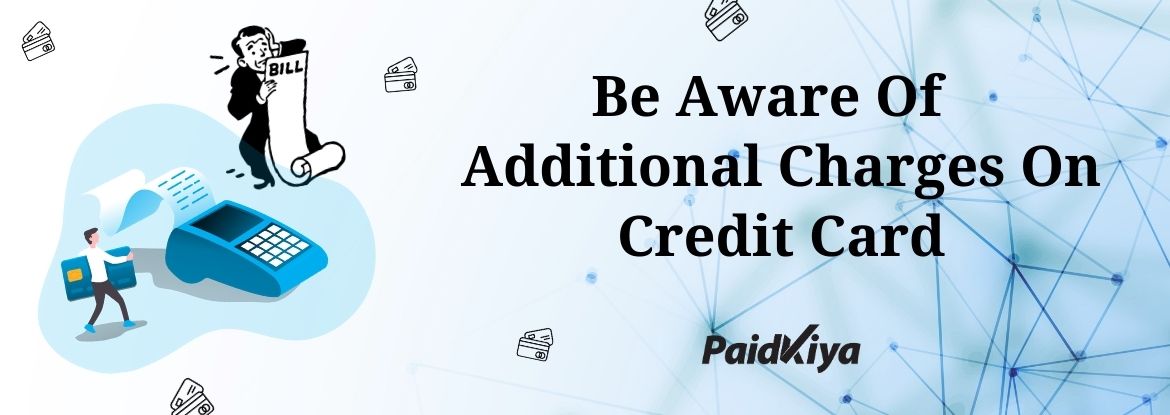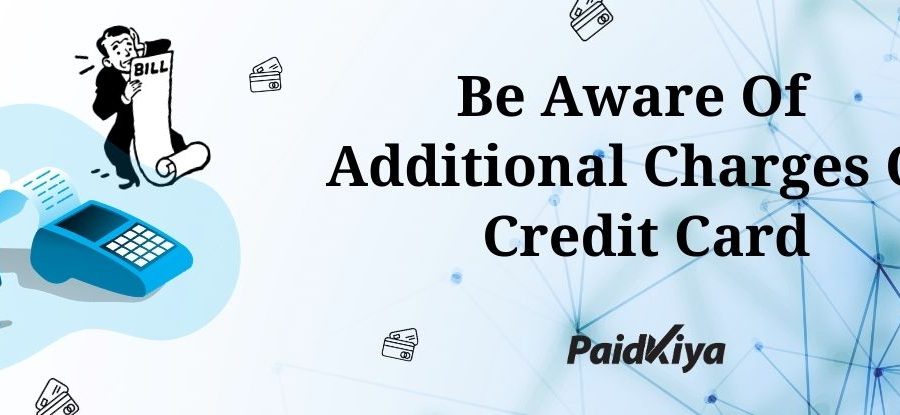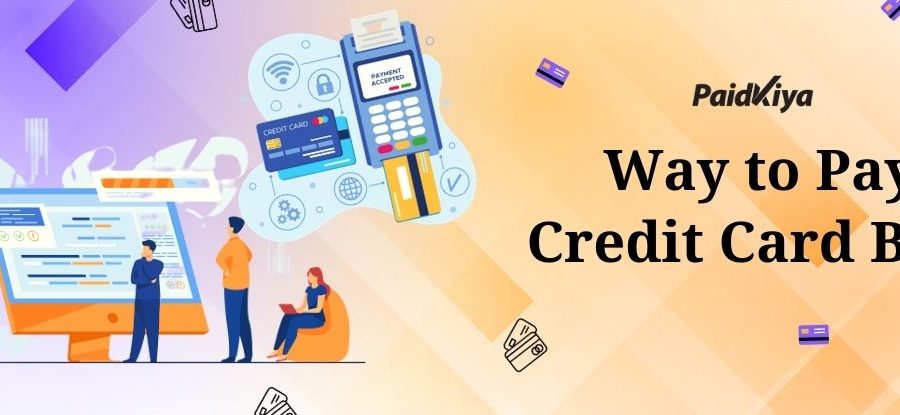Credit cards come in different categories that suit your requirements. Credit cards also come with extra features, reward points, and extra discounts. The credit card also provides you instant money during your money crisis. But you should know that charges associated with a credit card are very high. Expert suggestions say that you should know about these charges which charged from the cardholders. These credit card charges and fees also mention on a particular bank’s website or also informed by your card issuer. Some of these charges are compulsory you have to pay, others can be avoided or reversed.
Charges on Credit Card :
-
APR Interest Rate
APR (Annual Percentage Rate) is a source that tells you how much interest you will be charged on your credit card each year. Most credit card companies prefer to show monthly credit card interest rates. But to make it easier, they have to show the interest rate of the annual credit card. This includes the combined effect, such as showing interest paid on the previous month’s interest.
The APR charged on your credit card also affects your bill, especially when you carry an excess amount. This is because credit cards can also be a disaster because interest rates on credit cards are higher than other types of loans. But this only applies when you do not pay the total outstanding amount.
-
Late Payment Fees
As a credit cardholder, if you do not make the minimum payment on your credit card by the date or time specified on your bill that is 5% of the statement balance, you will be charged a late payment fee. These late payment fees are largely standardized throughout the industry. This may not seem like much but paying for it frequently can affect your credit card rating; Thus, your credit card provider can lower your credit card limit and increase credit card interest rates, rebuilding your credit card eligibility.
If you are not able to pay the outstanding amount on your credit card, banks offer you the option to pay the minimum amount. If you can’t even afford to pay the minimum amount, the bank will charge a late payment fee. The flat amount is charged based on your statement balance.
-
Cash advance fee
A portion of your total credit limit is given to you as a cash limit. This is the same amount you can withdraw directly from an ATM using your credit card. A cash advance is a very expensive transaction as it includes a Charges of 3% to 5% of the amount withdrawn. Furthermore, what many users do not know is that interest is charged on cash advances from the day of the transaction; then after The interest-free period does not apply to credit card cash withdrawals.
-
Annual maintenance fee
The annual fee is charged once a year and the amount varies from card to card. Sometimes, banks offer free credit cards, which means there is no fee or annual fee for a specific period or lifetime to join the card.
Remember that …When you are offered a ‘free’ credit card, you must confirm with the bank whether the card will be free of annual maintenance charges for a lifetime or just a few years.
-
Goods and Services Tax (GST) Charges
Goods and Services Tax is applicable to all taxable supplies from July 1, 2017.GST applies to all credit card transactions according to prevailing rates, so all users should know that. GST applies to the annual fees. interest payment, and processing fees on EMI. Currently, the rate of GST is 18% applies.
-
More limit fees
Depending on your credit card type, it may or may not allow you to spend more than the allotted limit. Banks do not allow this for free – they charge a hefty fee for such transactions. Most banks take a minimum charge of RS 500, but it also depends on your transaction amount which you exceeded your credit limit.
Maintain your utilization ratio of credit. Keep your monthly balance lower will good reflect on the credit score. you should not use a credit card on a daily purpose because it represents that you are fully dependent on credit. you must maintain your utilization ratio between 30-40%. This second most important thing that credit card bureaus consider after your Payment history.
-
Foreign currency mark-up fee
Although credit card issuers promote that their cards are globally accepted but they never disclose that there will be additional fees for foreign transactions known as foreign currency mark-up fees. Fees can vary from one card to another and are usually charged as a percentage of the transaction amount. Which is charged between 3% to 5%. So, try not to use your credit card while traveling abroad.
-
Surcharge
On Railway Transactions – Rs 25 or 2.5% Transaction (whichever is higher). On petrol transaction – Rs 10 or 1% transaction (whichever is higher). The rate of surcharge may depend on the bank.
-
Payment terms:
Check merchant outlet counters for payment term options. Equipped with this knowledge, you can go ahead and find it to be a Minimum payment.
-
Check the bounce charge
Generally, Rs 300 to Rs 350 will be debited for check bounce charge which depended on your bank.
-
Reward handling charges
Rs 99 will be taken as compensation for care and courier expenses for the redemption of the award for their reward program.
Disclaimer
The information and services included on this Web site may include discrepancies. Paidkiya will not be liable/responsible for any decision that you may take based on such inaccurate information. Changes are periodically added to Bank’s websites.





